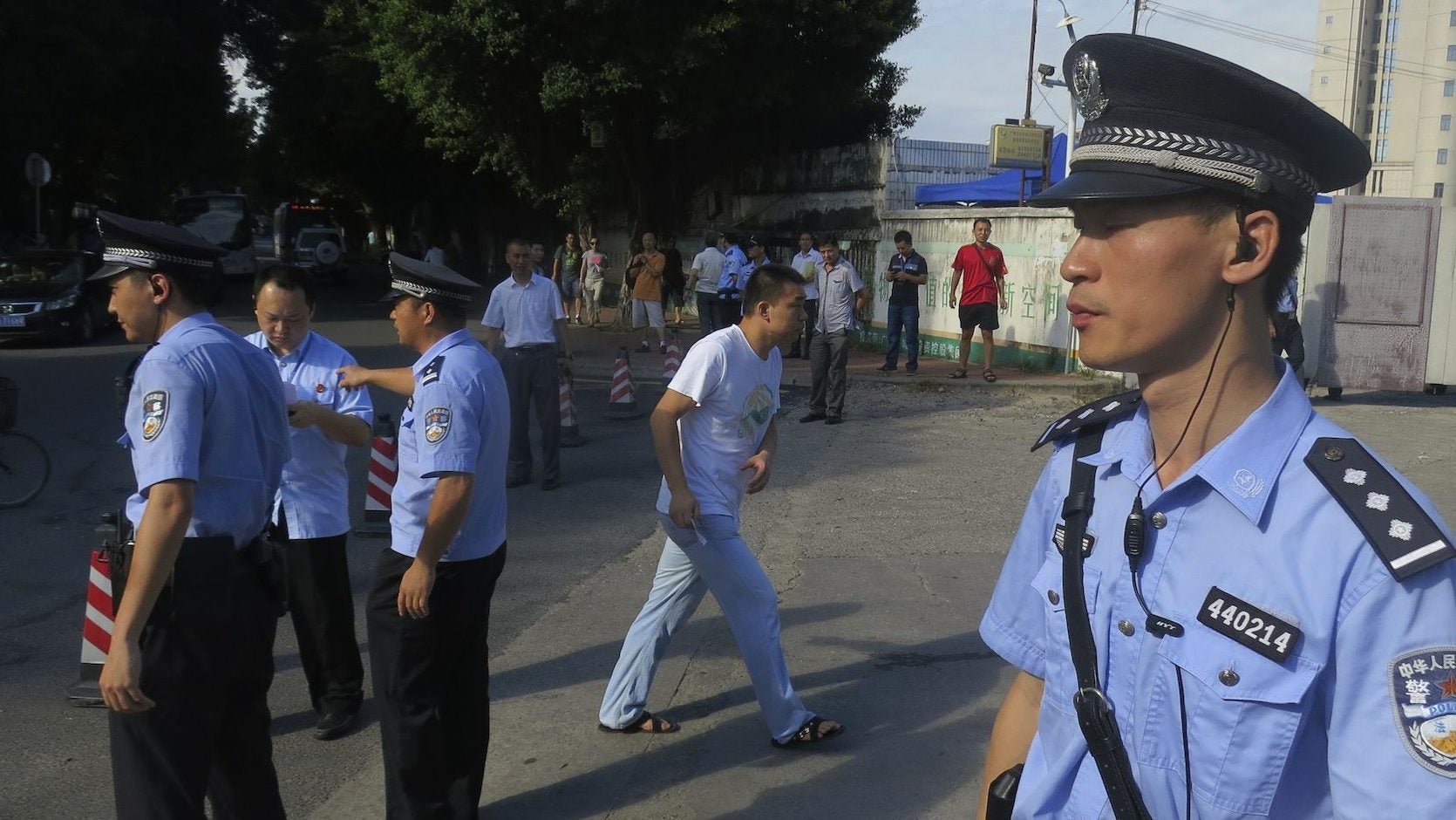One of the world’s most popular iOS apps right now was developed by Chinese police
TikTok was the most downloaded non-gaming app worldwide in September, according to US research firm Sensor Tower. The dominance of the video app, owned by China’s ByteDance, would probably not surprise many people, not least the parents of any teenagers or aspiring influencers. But the popularity of another Chinese app that month might.


TikTok was the most downloaded non-gaming app worldwide in September, according to US research firm Sensor Tower. The dominance of the video app, owned by China’s ByteDance, would probably not surprise many people, not least the parents of any teenagers or aspiring influencers. But the popularity of another Chinese app that month might.
Developed by China’s ministry of public security, “the national anti-fraud center” was the second most downloaded iOS app in September after TikTok, according to Sensor Tower’s monthly report this week. The analytics firm didn’t reveal the number of downloads for the Chinese app, which helps citizens block suspicious phone numbers and report malware, but it exceeded interest in YouTube, WhatsApp, and Instagram.
The app, which was launched in March by the ministry, first made it to Sensor Tower’s top 10 most downloaded iOS apps list in August, ranking seventh. Its rapidly growing popularity comes amid an unceasing marketing campaign by Chinese police, who have promoted it as a way for citizens to take back control from internet scammers. Their efforts have included giving citizens prop eggs printed with slogans promoting the app (one such slogan reads: “Internet scamming has many tricks, even this egg is fake”). Police officers have also held live streams on video apps encouraging citizens to download the app.
The app has only scored 2.6 out of 5 on Apple’s Chinese App Store, and some users have complained about being forced to install it. “I was stopped by two traffic police officers because I forgot to wear a helmet when driving an electric scooter. But after questioning me for not wearing a helmet, the officers asked me to download the anti-fraud app,” one reviewer wrote. “I don’t understand why I had to install it and why did the officers look like two salespeople?”
Concerns over surveillance
The app is targeted towards telecom scams, which are among the most rampant crimes in China. In 2020 alone, Chinese police reportedly cracked around 250,000 such cases and helped citizens to avoid a loss of around 120 billion yuan ($19.2 billion).
But there are concerns over the extent to which the app is surveilling users. Some Chinese users say they have been questioned by local police for accessing overseas websites including Bloomberg after installing the app. Others say the app requires 29 permissions from users, including live monitoring of call logs and texts, according to the Financial Times.
The app’s disclaimer on user privacy says it collects data on users’ personal details such as their ID number and device information, as well as information uploaded by users for reporting potential scams, including screenshots, call log, and text messages. “We won’t disclose that information to the public or any third party without your prior consent. But in situations involving national security, we will use relevant data strictly and prudently in accordance with relevant laws and regulations,” it said.
China’s data laws, especially those on what information tech firms can collect from users, are among the world’s strictest. But any reassurances in the app on user privacy from the ministry are outranked by laws that allow data collection for national security reasons, says Valentin Weber, a cyber research fellow at the German Council on Foreign Relations.
Under China’s anti-espionage and intelligence laws, individuals and corporates have basically no power to refuse data requests of their data from the government. As a result, the app’s privacy policy should be “strongly questioned,” Weber says.”There are few to no limits on what data Chinese authorities can collect or what they do with it thereafter.”